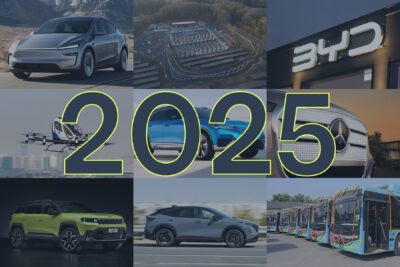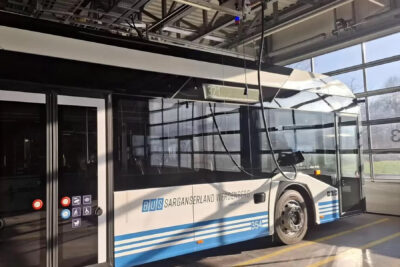Car industry looks to shake up the EU’s CO2 limits?
Neither the sender nor the addressee of the document are yet known. However, it is said to be an authentic, internal document, which is available to the news agency DPA. The content is about the current tense situation in the car industry, against the backdrop of which the decision to tighten CO2 fleet limits could cause serious problems for manufacturers in the EU. There are warnings of a horror scenario with millions of job losses. To prevent this from happening, an emergency article that was already used during the coronavirus crisis is proposed. This would allow the EU Commission to postpone the introduction of stricter regulations by two years.
According to the authors of the letter, the current market situation with weakened demand for electric cars is not suitable as a foundation. According to the letter, the industry is not in a position to comply with an impending tightening of EU climate targets. As a result, the EU industry will be confronted with fines totalling billions. Those who want to avoid penalties might have to curb production, as the letter states: “EU industry will have little choice but to significantly cut production, which threatens millions of jobs in the EU, harms consumers, and adversely impacts the EU’s competitiveness and economic security.”
The background to this is that the EU member states and the European Parliament reached a political agreement in 2022 on stricter CO2 emission standards for new cars and light commercial vehicles, thereby sealing the end for new cars with combustion engines from 2035. The tightening of the standards will take place in three stages – 2025, 2030 and 2035, with the decision to be reviewed in 2026.
The basic structure of the fleet limits is as follows: Manufacturers can continue to bring vehicles with combustion engines onto the market, but must pay a premium of 95 euros per gram of CO2/km above the target per registered vehicle if their emissions target is exceeded in a given year. One thing is clear: the stricter limits for car manufacturers can only be achieved with more electric cars that bring the average down.
According to Der Spiegel, the internal letter is known to the European Automobile Manufacturers’ Association (ACEA). However, it is not an official document from the lobby organisation. It is quite possible that there is a contextual connection with the unrest at Volkswagen. This would certainly explain the timing of the internal publication. Among those in favour of the postponement of the fleet limits called for in the letter is Hans Dieter Pötsch, a Volkswagen man – specifically the Chairman of the VW Supervisory Board. “We know today that demand for electric cars in Europe is falling far short of expectations,” said Pötsch recently at the Vienna Electric Days, according to the German publication Süddeutsche Zeitung. “Electromobility will prevail, but it will take more time. That is why the CO2 targets for 2025, 2030 and 2035 need to be adjusted and adapted to reality.”
According to Redaktionsnetzwerk Deutschland, the German government has already responded to the demand. It rejects the demand for a relaxation of the standards. A spokesperson for the Ministry of the Environment told the publication Welt am Sonntag that manufacturers had only closed their compliance gaps in the previous target value stages in the target year and not prematurely. The vast majority of manufacturers had largely succeeded in doing so, although some of the gaps had been larger in the past than they are now. He added: “We are confident that the German automotive industry will once again demonstrate its reliability and technological expertise and achieve the target values.”
The environmental organisation Transport & Environment also describes the demands made in the internal paper as ‘absurd’. The car manufacturers would have had enough time to prepare for the CO2 target, which has been known since 2019.
The German Association of the Automotive Industry (VDA) has also reiterated its position on the fleet limits. The association is in favour of bringing forward the review of the fleet regulation for passenger cars and light commercial vehicles planned by the EU Commission to 2026 to 2025. The review of fleet regulation for heavy commercial vehicles, which is scheduled for 2027, should also be brought forward by one year to 2026, it says. VDA President Hildegard Müller commented: ‘Politicians can set CO2 reduction targets – but in addition to the considerable efforts made by the automotive industry, the framework conditions necessary to achieve the targets are crucial.’ She notes that the gap between ambitious targets in fleet regulation and supportive framework conditions is widening. “We have repeatedly pointed this out and called for appropriate countermeasures.”
bnnbloomberg.ca,transportenvironment.org, sueddeutsche.de, rnd.de, vda.de (last three in German)





0 Comments